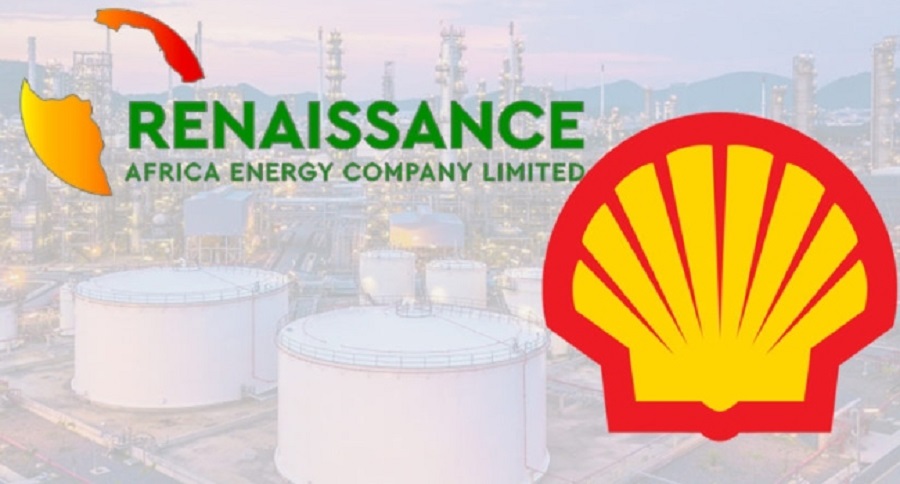News
Felak Concepts Explains Relocation of of Ibom Deep Sea Port from Okposo to Ibeno

The relocation of the $4.6 billion Ibom Deep Sea Port (IDSP) from Okposo to Ibeno is not political but based on professional and engineering decisions, said Felak Concepts Ltd, the Transaction Advisor/Consultants to the IDSP and Free Trade Zone project.

In a statement issued by Mr. Ezekail Adamu, spokesman for the consultant, it explained that the essence of the project initiated by the Federal Ministry of Transport and Akwa Ibom State Government as a full scale Greenfield Commercial Deep Sea Port Development in line with the proposed Ibom Industrial City (IIC) was too strategic for the Nigerian government and Akwa Ibom state to be subjected to politics.
According to Adamu: “Our company observed due diligence and subjected the selection process to high level transparency as evidenced in all the technical reports submitted. We did not influence or manipulate the relocation of the ports from Okposo to Ibeno.”
Findings showed that five locations were initially shortlisted for the mega-project expected to provide no fewer than 300,000 jobs. Out of the five locations, Okposo was selected as the site at the preliminary stage based on initial/ preceding studies for the Initial Due Diligence (IDD) which itself was subjected to further studies and research to ascertain its suitability.
The consultant explained that this was in tune with global best practices for projects of this magnitude and nature as all the characteristics and parameters were considered “leading or required to arrive at and make a fully founded location selection in the Final OBC/PPF document.”
On its selection as transaction advisor cum consultant, the statement explained: “The State Government through a selective bid tendering process engaged Felak Concept Limited and her Technical Partners, MTBS of Netherlands with clear schedule and terms of reference towards the realization of the development of the Ibom Deep Sea Port.
“The Federal Ministry of Transport was duly notified of our appointment and they swiftly inaugurated the already constituted Ministerial Project Development and Steering Committee (MPDSC) and the Project Delivery Team to midwife/drive the process, as well as direct the TA/Consultants in their deliverables in line with the Infrastructure Concession Regulatory Commission (ICRC) guidelines,” the statement said.
Consequently, according to the statement, the team commenced work and ensured the Initial Due Diligence Report for the Ibom Deep Sea Port and Free Trade Zone was ready by January 2013.
“The goal and objective of this report was to carefully assess the project, verify its feasibility/viability and design a structural approach for the subsequent phases. In other words, the IDD was a preliminary report covering the location analysis of the pre-selected locations, development options for the Port and Free Trade Zone, implementation plan, and preliminary business case among others.”
Adamu explained that none of these is a political decision but basic engineering, economic and other professional considerations. He said that though the initial name was Ibeno Deep Sea Port, it is now Ibom Deep Sea Port to “depict an all-inclusive project for the entire state.”
To make clarifications on change of location and name, Adamu said the consultant wrote a letter dated 3rd October, 2015 to Akwa Ibom State Government “on the need to convene an immediate town hall meeting involving the TAs, Surveyors, MPDSC members, the Governor, His Exco and all stakeholders within the state on the resolution of salient communal issues; such as the clarification and basis of the change of name from Ibaka to Ibom Deep Sea Port, change of location due to a new engineering alignment and other critical factors and analysis.”
The total cost of construction of the Ibom Deep Seaport is $4.6 billion but the first phase of it is $2.016 billion which was approved on Wednesday Dec. 16, 2020 by the Federal Government.
Ownership structure of the project is 60 per cent for the private sector and 40 per cent for the public sector.
News
Abiola Adelana: Empowering African Creativity and Heritage Through Pashione

Abiola Adelana is a visionary leader whose career blends finance, culture, and innovation. With over 15 years of experience in banking and strategic development, she brings unmatched expertise to her role as Co-Founder of Pashione, an e-commerce platform dedicated to connecting Africans in the diaspora with authentic African fashion and heritage.

As the Tourism and Creative Arts Business Manager at Sterling Bank, Abiola has led groundbreaking initiatives to revive Nigeria’s tourism sector through sustainable financing. She is credited with establishing Sterling Bank as the first Nigerian financial institution to formally support the tourism industry, earning national and international recognition for her leadership.
At Pashione, Abiola is pivotal in shaping the brand’s strategy—bridging fashion, culture, and commerce to spotlight African designers and artisans globally. Her passion for African heritage and economic empowerment fuels her mission to create a platform that doesn’t just sell fashion but tells the story of Africa through every piece.
She is a proud member of the Domestic Tourism and Economic Development Working Committee, coordinated by the Nigerian Tourism Development Corporation (NTDC), and has earned multiple accolades, including:
- Culturati 100 Most Influential Personalities
- Adire Osun Brand Ambassador (appointed by the Osun State Governor)
- Rising Star Nominee – Pyne Awards Africa
- International Women’s Day Recognition for innovation in banking and tourism
Abiola is also a board member of Tourism Investment Africa, Solution17 for Climate Action and the Olowe of Ise Art Foundation (appointed by the Governor of Ekiti State).
Her academic background includes a degree in Economics from Obafemi Awolowo University, an MBA in Finance, and executive education at Harvard Business School, and she is a certified member of the Chartered Institute of Bankers of Nigeria (CIBN).
Through both Pashione and her work in the public and private sectors, Abiola continues to champion African excellence, sustainability, and creativity. She is committed to seeing Africa’s culture, fashion, and tourism take center stage on the global map.
News
World Bank Approves $1.08Bn Loan for Nigeria

The World Bank announced on Wednesday that it had approved a total of $1.08 billion in concessional financing for Nigeria to enhance education quality, build household and community resilience, and improve nutrition for underserved groups.

In a statement, the world’s largest multilateral development bank said that the loan is intended to help strengthen its extensive reach and impact in Nigeria in the face of economic hardships, especially in the wake of the Federal Government’s economic reforms in 2023.
According to the statement, the loan comprises $500 million in additional financing for the Nigeria Community Action for Resilience and Economic Stimulus (NG-CARES) Program, $80 million for Accelerating Nutrition Results in Nigeria (ANRIN 2.0), and $500 million for Hope for Quality Basic Education for All (HOPE-EDU).
Specifically, the statement said that the NG-CARES Program will support the Nigerian government in expanding access to livelihood support, food security services, and grants for poor and vulnerable households and communities.
The financing for ANRIN aims to increase the utilization of quality and cost-effective nutrition services for pregnant women and lactating mothers, adolescent girls, and children under five in select areas.
The new financing for HOPE-EDU will focus on improving foundational learning, access to basic education, and strengthening education systems in participating states.
It further stated that the NG-CARES Program was initially designed to respond to the COVID-19 pandemic and has since evolved into a shock-responsive platform providing multisectoral interventions for the poor and vulnerable.
Implemented at the subnational level across all 36 states and the Federal Capital Territory, the program stimulates the local economy through social transfers, labor-intensive public works, livelihood grants, basic community services, agriculture and food security interventions, and support to micro and small enterprises.
The additional financing will strengthen the program’s extensive reach and positive impact, underscoring the need for continued support in the face of economic hardships, including those from the 2023 fuel subsidy reforms and foreign exchange rate unification.
The statement noted that ANRiN 2.0, which aligns with Nigeria’s National Development Plan (2021-2025), the Multisectoral Plan of Action for Food and Nutrition (2021-2025), and the Nutrition-774 initiative, offers an evidence-based, multisectoral approach to combating malnutrition and food insecurity, focusing on maternal and child health, integrated nutrition services, and household food security.
It added that the program will increase the utilization of preventive and curative nutrition services, improve maternal and young child feeding practices and dietary diversity, increase access to micronutrient-rich foods, and provide essential nutritional support to vulnerable populations, mitigating the immediate risks of malnutrition and food insecurity.
The initial ANRIN program reached over 13 million children under five with nutrition services between 2018 and 2024.
For HOPE-EDU, which is part of a series of three interrelated operations alongside HOPE-Governance and HOPE-Primary Health Care, the program aligns with Nigeria’s Universal Basic Education program objectives and strategies.
HOPE-EDU will support structured pedagogy approaches to foundational literacy and numeracy, create learning opportunities where school overcrowding impedes participation, and adopt decentralized allocation and management of Universal Basic Education Intervention Funds, school management, and system information.
The program is expected to directly benefit 29 million children enrolled in public primary schools, 500,000 public primary teachers, and more than 65,000 public primary schools and their School-Based Management Committees.
The program will also receive co-financing in the amount of $52.18 million from the Global Partnership for Education Fund.
The statement quoted Ndiamé Diop, country director for Nigeria, The World Bank, as saying: “Investing in human capital is critical for Nigeria as it offers the best opportunity to unlock the enormous potential of the country.
“These new sets of programs will help Nigeria accelerate education quality and support vulnerable citizens.
“The HOPE-EDU program will enable better education outcomes by implementing bold reforms and making the right investments to equip the fast-growing young population with foundational skills and knowledge necessary for rapid and inclusive economic growth.
“Nutrition interventions from ANRIN will enhance household access to micronutrient-rich foods and nutrition services at the primary healthcare level, improve dietary diversity, and provide essential nutritional support to vulnerable populations, mitigating the immediate risks of malnutrition and food insecurity.
“The NG-CARES additional financing will support the Nigerian government in transitioning from responding to and recovering from the COVID-19 crisis to building household and community resilience.”
News
Shell, Renaissance Face Legal Action over SPDC Licence Transfer

A suit seeking to stop Shell Petroleum Development Company Limited’s deal transferring its mining licence to Renaissance African Energy Company Limited has been filed at the Federal High Court in Lagos.

The Incorporated Trustees of Human Environmental Development Agenda (HEDA) sued Shell Petroleum Development Company Limited, Renaissance African Energy Company Limited, the Federal Republic of Nigeria, and four others over the transfer of an oil exploration licence.
Other defendants are: Mr Lateef Fagbemi, attorney-general and minister for Justice of the Federation; the Nigerian National Petroleum Company Limited; the Nigeria Upstream Petroleum Regulatory Commission; and the Ministry of Petroleum Resources.
Renaissance Africa Energy Holdings, a consortium consisting of four Nigerian independent oil and gas companies – ND Western Limited, Aradel Holdings Plc, FIRST Exploration and Petroleum Development Company Limited, the Waltersmith Group, and Petrolin – recently completed the acquisition of the entire equity holding in the SPDC.
In the suit filed by Kunle Adegoke on behalf of the plaintiff, HEDA raised concerns about alleged non-compliance with Nigeria’s legal and regulatory frameworks governing the petroleum industry.
In suit number FHC/L/CS/651/2025, the group alleged that Shell’s sale of the onshore assets to Renaissance violated several Nigerian laws, including the Petroleum Industry Act 2021.
Key issues raised by HEDA include concerns over the legality, transparency, and regulatory compliance of the transaction.
The plaintiff asserted that the process failed to meet statutory provisions, including the requirement to conduct and disclose an Environmental Evaluation Study under the Upstream Petroleum Environmental Regulation, 2022.
The organisation argued that allowing the transaction to proceed without adhering to these legal requirements could set a dangerous precedent and undermine the national and public interest, particularly regarding environmental sustainability and the welfare of communities in the Niger Delta.
HEDA requested the court to declare that by sections 10 (f), 95 (11) and (15), 235, 237, and 238 of the PIA Regulations; 4.2.5, 5.2.4, 5.2.5 and 5.4 of the Guidelines for Obtaining Minister’s Consent to Assignment of Interest in Oil and Gas Assets, 2021; Regulations 7 and 8 of the Upstream Petroleum Environmental Regulation, 2022; Regulations 8(1) and (2), 9(1) and (2) of the Upstream Petroleum Environmental Remediation Regulations, 2024; Regulation 13(1) – (3) of the Gas Flaring, Venting and Methane Emissions (Prevention of Waste and Pollution) Regulations, 2023; Shell’s transfer of its oil exploration license to the 2nd defendant “is invalid, unlawful and not backed by the extant and enabling Laws of the Federal Republic of Nigeria.”
The organisation also wants the court to declare that, given the failure of the defendants to comply with the provisions of the various sections, the consent/approval given by the government to Shell in order to transfer/assign/divest its oil exploration licence to the Renaissance is unlawful, null and void.
The company’s spokesperson could not be reached for comments as of press time.
In March, Shell said it had completed the sale of SPDC to Renaissance, as announced on January 16, 2024.
The energy giant explained that the divestment of SPDC aligns with its intent to simplify its presence in Nigeria through an exit of onshore oil production in the Niger Delta and a focus on future disciplined investment in its deepwater and integrated gas positions.
Renaissance now controls SPDC’s 30 per cent stake in the SPDC Joint Venture, an unincorporated joint venture with the government-owned Nigerian National Petroleum Company Limited, Total Exploration and Production Nigeria Ltd (10 per cent) and Agip Energy and Natural Resources Limited (five per cent).

 Telecom2 days ago
Telecom2 days agoMTN Denies Data Theft Allegations, Says no Financial Incentive to Do So

 Telecom2 days ago
Telecom2 days agoVitel Wireless, Nigeria’s First MVNO to Launch Operations This Quarter

 E-Financial2 days ago
E-Financial2 days agoFG Asks World Bank for Fresh $10.50m Loan to Enhance CBN Technical Capacity

 Telecom2 days ago
Telecom2 days agoTop Nigerian Journalists to Share Insights On MTN MIP This Friday

 Telecom2 days ago
Telecom2 days agoTruecaller Surpasses 450m Users, Expands Global Reach

 Telecom2 days ago
Telecom2 days agoipNX Partners NCC to Deepen Broadband Penetration

 Telecom1 day ago
Telecom1 day agoSophos Reveals Key Findings: 56% of Cyberattacks Exploit Valid Credentials

 Broadcasting1 day ago
Broadcasting1 day agoBurna Boy, Other Nigerian Artists Pocket $38m from Spotify in 2024


























